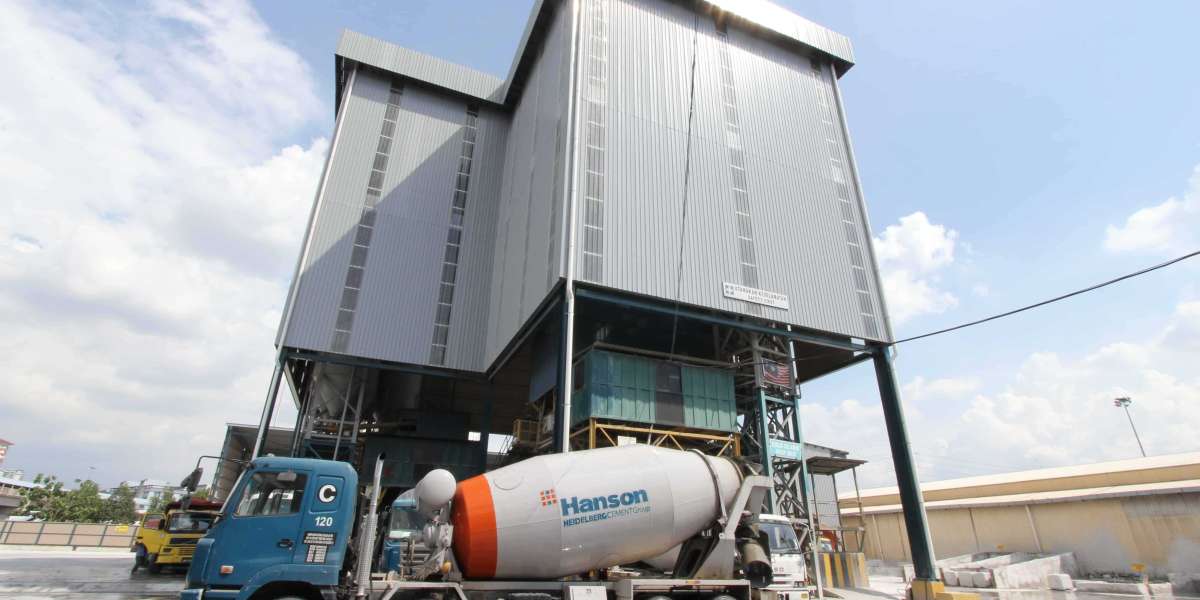What is Ready Mix Concrete?
Ready mix concrete is a pre-mixed blend of cement, water, aggregates (such as sand, gravel, or crushed stone), and additives, delivered to a construction site in a ready-to-use state. Unlike traditional concrete, which is mixed on-site, RMC is produced in a controlled environment, ensuring consistency in quality and composition. The concrete is transported to the site using specialized trucks with rotating drums that keep the mix fresh until it’s ready to be poured.
The Benefits of Ready Mix Concrete
1. Consistent Quality
One of the primary advantages of ready mix concrete is its consistency. Since the concrete is mixed in a controlled, automated environment, the precise proportions of materials are guaranteed, reducing the chances of human error. This results in a uniform product that delivers the same strength, durability, and performance in every batch.
- Controlled production process ensures that the correct mix of water, cement, and aggregates is always used.
- Computerized batching systems provide better control over mix variations and minimize deviations from the desired specifications.
2. Time-Saving
The use of ready mix concrete significantly reduces the time needed for on-site mixing. Since the concrete is delivered ready to pour, construction teams can work faster, which accelerates project timelines.
- Quick delivery and pouring mean projects can move forward without delays.
- Less labor-intensive since on-site mixing is eliminated, freeing up workers for other tasks.
3. Reduced Material Waste
Ready mix concrete reduces waste by ensuring that only the exact amount of concrete needed is mixed and delivered. This leads to more efficient use of resources and less leftover material at the end of a project.
- Accurate volume calculations ensure minimal excess or shortage of concrete.
- Reduced site clutter from unused materials and excess waste that would need to be discarded.
4. Environmentally Friendly
RMC can contribute to more sustainable building practices. The production of ready mix concrete is often more efficient, leading to lower emissions and reduced resource consumption. Additionally, some RMC plants use recycled water and aggregates, further decreasing the environmental impact.
- Reduced carbon footprint from optimized production and reduced transportation needs.
- Recycling of materials like fly ash or slag in the concrete mix.
5. Versatility
Ready mix concrete is incredibly versatile and can be tailored to specific construction needs. Whether you need high-strength concrete, lightweight mixes, or fast-setting varieties, RMC can be customized for different applications.
- Additives and admixtures can be incorporated to enhance durability, workability, and resistance to specific environmental conditions.
- Specialty mixes can include waterproof concrete, fiber-reinforced concrete, or self-compacting concrete for various construction scenarios.
Common Uses of Ready Mix Concrete
Ready mix concrete is used in a wide range of construction projects, from residential to commercial and industrial applications. Here are some of the most common uses:
1. Residential Construction
RMC is commonly used in the construction of homes, particularly for foundations, driveways, patios, and flooring. Its strength and durability make it ideal for supporting the weight and structural integrity of residential buildings.
- Foundation slabs and footings provide a stable base for homes.
- Driveways and walkways benefit from the smooth finish and durability of RMC.
2. Commercial Buildings
For larger-scale projects such as office buildings, shopping centers, and hospitals, ready mix concrete is used for everything from walls and floors to columns and beams. Its ability to be precisely mixed ensures the high strength needed for commercial buildings.
- Structural components like beams and columns are essential for supporting multi-story buildings.
- Parking lots and ramps use RMC due to its long-lasting performance and resistance to heavy traffic.
3. Infrastructure Projects
Ready mix concrete is a vital component in infrastructure construction, such as bridges, highways, dams, and tunnels. Its high compressive strength and durability make it suitable for enduring the extreme conditions these structures face.
- Roadways and highways rely on RMC for smooth surfaces and durability under heavy loads.
- Bridges and overpasses require high-strength concrete for long-term stability.
4. Industrial Applications
In industrial construction, ready mix concrete is used for everything from factories and warehouses to power plants. The flexibility in mix design ensures that RMC can meet the unique demands of industrial projects, including chemical resistance or exposure to extreme temperatures.
- Heavy-duty flooring for factories and warehouses ensures longevity and resistance to wear and tear.
- Containment structures for power plants or industrial facilities require specialized concrete mixes with additional reinforcement.
How Ready Mix Concrete is Revolutionizing Construction
1. Automation and Precision
With advancements in technology, the production of ready mix concrete has become more automated, reducing human error and increasing precision. The use of computer-controlled batching plants ensures that the mix design is followed exactly, resulting in concrete that meets the precise needs of each project.
- Automated production systems reduce inconsistencies and enhance quality control.
- Precise mixing ratios allow for the creation of high-performance concrete tailored to specific project requirements.
2. Faster Project Completion
Ready mix concrete’s availability and speed of delivery help reduce the overall timeline of construction projects. Pre-mixed concrete eliminates the need for on-site batching, which can be time-consuming and labor-intensive. As a result, construction teams can complete projects faster and with fewer delays.
- Pre-scheduled deliveries ensure that concrete arrives on-site exactly when needed.
- Quick setup and curing allow teams to move on to subsequent phases of construction more quickly.
3. Enhanced Durability and Strength
Because ready mix concrete is produced under controlled conditions, it consistently delivers high-quality, durable results. Projects built with RMC are often more resilient, withstanding weather extremes and heavy loads over time. This makes RMC a key player in constructing long-lasting infrastructure.
- Higher compressive strength allows for the construction of structures that can bear heavier loads.
- Improved durability means less maintenance and repairs over the lifespan of the structure.
4. Sustainability and Innovation
In recent years, RMC plants have integrated sustainable practices into their operations, such as using recycled aggregates, optimizing energy use, and reducing water consumption. The introduction of green concrete, which incorporates recycled materials, has further reduced the environmental impact of construction.
- Green concrete reduces emissions and lowers the demand for virgin materials.
- Innovative admixtures improve the workability and performance of concrete while minimizing its carbon footprint.
Conclusion
Ready mix concrete has undoubtedly revolutionized the construction industry by offering a solution that is both efficient and versatile. Its benefits, such as consistent quality, time savings, and environmental friendliness, make it the material of choice for many construction projects, from residential homes to large infrastructure developments. As technology advances and sustainability becomes a bigger priority, RMC is poised to play an even more significant role in the future of construction.

